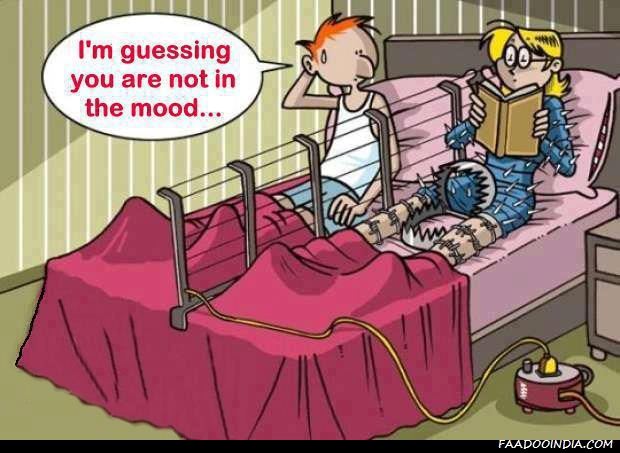Why The Vagina Monologues Can Make You a Better Man
/Think the Vagina Monologues is just for women? Think again. Dr. Jennifer Gunsaullus explores some of the important ways that men can learn about women, female sexuality and female bodies on VDay
—-
By now you’ve probably heard about The Vagina Monologues, but unless you’ve seen a production of it yourself, you’ve heard more about the controversy and less about the education or empowerment of the play itself. Written by playwright Eve Ensler in the mid-90s, this piece is a bunch of women talking about vaginas and vulvas. And talking about sex, their bodies, relationships, and sexual violence. It’s based on real interviews with real women, making each monologue powerful, and taking the audience through a gamut of emotions around female sexual experiences. Women who are open to exploring this sort of thing typically exit the production feeling powerful and grateful that their experiences finally have a voice. They are excited that these taboo topics are being discussed. The Vagina Monologues is produced by community groups and universities around the world, all raising funds for local women’s nonprofits.
 But what about the men? Is there anything in the show for a man?
But what about the men? Is there anything in the show for a man?
I’ve been involved with ten productions of this play, as an actor or director. So I’ve cajoled more than my share of men to attend, and have fended off many excuses. Afterwards, my male friends were always shocked with how much they were moved and amused. Sure they were uncomfortable and even confused at times. But definitely not disappointed they attended. If you’re interested in checking out a show, this will help prepare you for the experience.
First, there are always men in the audience, so you will not be alone. The audience will be primarily women, and everyone on stage is a woman. You may not be in situations like this very often, so it could feel uncomfortable or intimidating. Going with friends you can joke with may ease this discomfort.
Second, it is a very emotionally challenging event. You might feel moved to tears, or the women around you might cry. You will laugh—a lot. You’ll get angry, worried, and be amazed at what you likely don’t know about the complexity of women’s sexuality. If raw emotions are hard for you to sit with, and empathy isn’t your strong suit, you might even hate the show, anxiously waiting for it to be over.
So it isn’t for everyone. But of the dozens of men I’ve talked to about the show, I heard only one negative review among all of the other positive ones. I understand that my male friends might be reluctant to share certain aspects of their experience, but what they expressed is very telling. What did these guys get out of the show?
Here’s what they said in their own words:
“I was surprised there’s a lot going on that’s not in the male realm of experience.”
“It was slightly awkward initially, hearing about vaginas that much. But also kind of liberating, as it was such a taboo thing to mention, let alone talk about.”
“[I] didn’t realize how complex women’s relationships with their junk are . . . dudes on the other hand, from age 13 know our junk cold and have no problems discussing it. Stark contrast.”
“It brought awareness to my life as a male that I would have otherwise never considered, and I consider myself to be fairly forward thinking and informed on matters of feminism and women.”
“I’ll be the first to admit women are a mystery, and the VM definitely opened my eyes to struggles I would not have previously been aware of or cared about. I laughed a lot . . . but most of all felt saddened by the event . . . my lack of knowing, and how reflective that is of the world we live in. Saddened by the fact that the Vagina Monologues is necessary and that women have struggled, continue to struggle and are still not given the respect as human beings they deserve.”
“One thing that stands out in my memory is the surprising realization that women in first world countries still face several of the same issues as those in the third world. Especially when it comes to the abuse, violence and the denial of ownership of their own sexuality.”
“It was moving, sad, hopeful, a little uncomfortable, funny.”
 Being uncomfortable and vulnerable around sexual topics is not a bad thing, especially if it helps men realize that there’s a lot more to learn and understand. These experiences can deepen the vulnerability of conversations between women and men about sexual topics. Such discomfort can lead to questioning, learning, and growth. Female sexuality is complicated—or beautifully complex, as I like to say.
Being uncomfortable and vulnerable around sexual topics is not a bad thing, especially if it helps men realize that there’s a lot more to learn and understand. These experiences can deepen the vulnerability of conversations between women and men about sexual topics. Such discomfort can lead to questioning, learning, and growth. Female sexuality is complicated—or beautifully complex, as I like to say.
I’ve read some critiques that The Vagina Monologues is “male-bashing.” My thought is if you’re looking for male-bashing, you’ll find it anywhere that women are speaking out about harm they’ve experienced, especially in the sexual realm. On the other hand, if you’re open to hearing a different perspective that could be uncomfortable and make you look at yourself and the world differently, then you’ll appreciate this experience. I believe talking about it openly is so much better than shameful silence.
I don’t think The Vagina Monologues is a perfect play that accurately depicts all the depths of women’s sexuality around the world. Eve Ensler took the stories that were shared with her and filtered them through her lens as a woman with poetic license. Some of it may be outdated and outrageous, but it does a damn good job of opening a dialogue that is still sorely missing, and opening a space for compassion. As one man explained, “By the end, I felt like a more progressive human being.”
Check out VDay’s website to find a production in your area, from February through April.
(I wrote this article as a Relationship, Love + Sex writer at The Good Men Project.)
~Dr. Jenn Gunsaullus, Sexologist - Sociologist - Sexuality Speaker - Vagina Warrior!














































